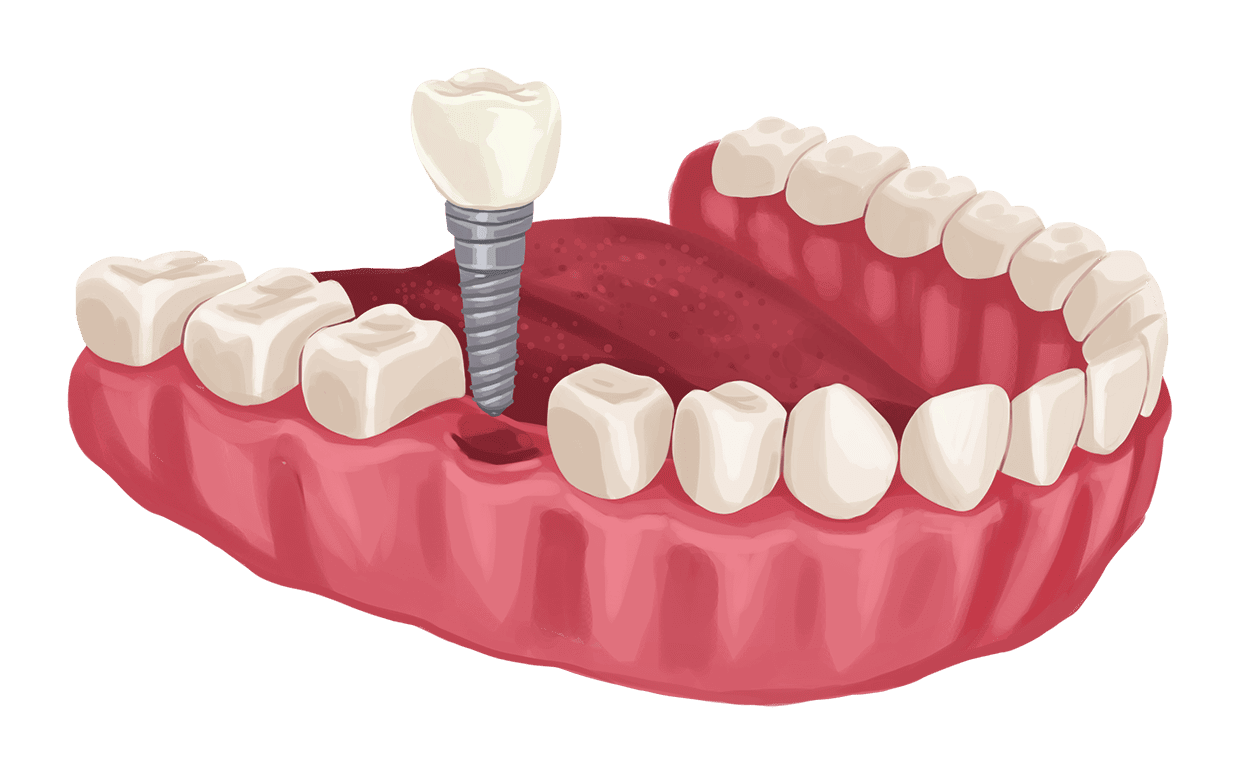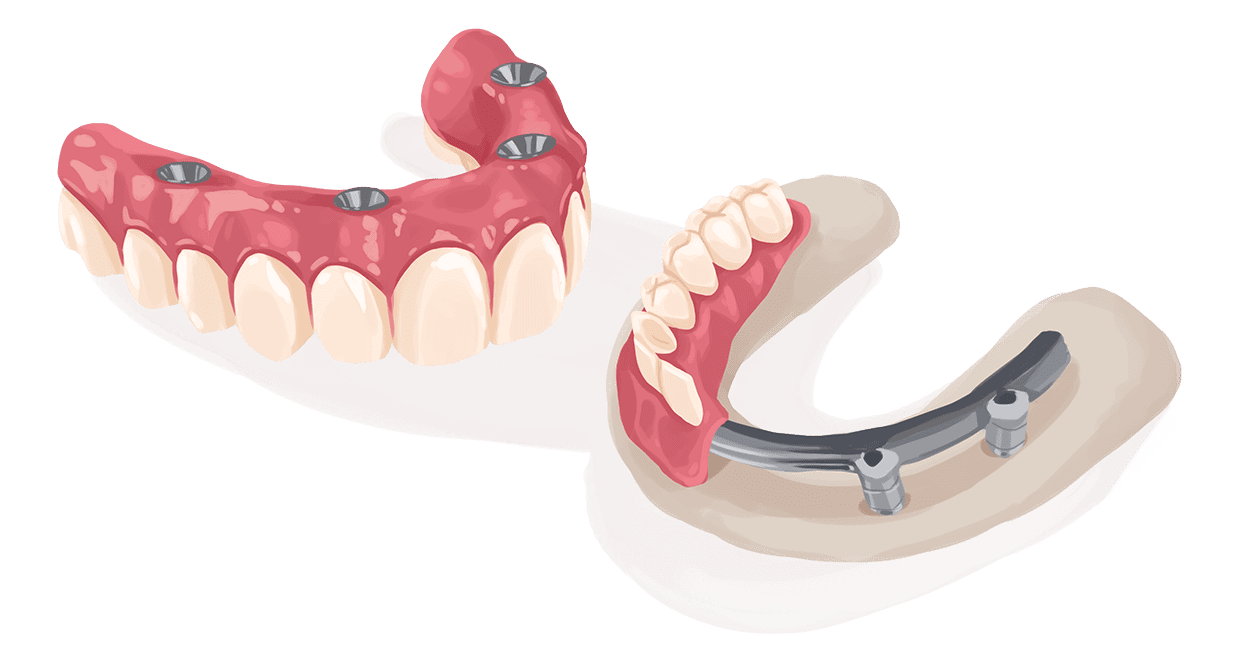If you have missing teeth and your diabetes is under control you are most likely a good candidate for dental implant placement.
Diabetes is a disorder that interferes with general health and daily life. The problems it creates include a wide array of dental issues, such as dry mouth, thrush, and, most importantly, loss of teeth.
It’s no secret that the best way to bring back a natural-looking smile is getting dental implants. So what should diabetics consider if they want to get them?
In this guide, we address the crucial factors and considerations for individuals with diabetes seeking dental implants, covering the common doubt, “Can diabetics get dental implants?” to empower informed decision-making for a confident smile restoration journey
What is diabetes?
Diabetes is a group of disorders that includes raised sugar levels in the blood. It affects the whole body, not just certain areas or organs. There are different types of diabetes, type 1 and type 2 being the most common.
In type 1 the body does not make enough insulin. In type 2 the body stops responding to it.
Symptoms include:
- being very thirsty or tired,
- urinating a lot,
- having problems with weight management,
- problems with blood circulation,
- inefficiency in fighting infection,
- slower healing and
growing of bone.
These issues can be related to dental procedures, the implant process in particular.
How does diabetes affect oral health?
Those suffering from diabetes are more likely to develop gum disease and tooth decay. Dry mouth, a common issue, also means less taste sensitivity.
These issues can lead to tooth loss, and that in turn to changes in diet. The result is malnutrition, a serious problem for those who should be monitoring their diet closely.
Some issues are linked in a cause-and-effect way:
-
Difficulty in healing and fighting bacteria
-
More cavities and abscesses
-
Frequent antibiotic treatment
-
Thrush (a fungal infection in the mouth)
The fungus thrives in high-sugar environments, such as saliva of a diabetic.
Those issues can be even more problematic if conventional dentures are worn. Those can be tricky due to dry mouth and issues with bone growth (conventional dentures do not provide stimulation).
Another common problem is inflammation caused by friction between the denture and gums. If you are a diabetic with missing teeth, conventional dentures might not be the best choice for you.
You should always replace missing teeth, otherwise, your diabetes could become worse.
Should you get dental implants if you have diabetes?

Getting implants really is an idea worth considering, especially if you have diabetes, as they can help aid some of the issues inherently linked to that disorder.
The great thing about them is that they provide a great deal of stability. Conventional dentures can lead to a starchy, soft menu.
If you have diabetes, you are probably more conscious of your diet than the average person and know this could make the problem worse. Dental implants enable you to bite and chew more comfortably.
They also stimulate the bone and prevent loss. In order to get implants installed the bone has to be thick enough. If it isn’t, the patient must undergo bone grafting. Provided your diabetes is well-controlled, this procedure is as safe as for other patients.
Remember that, at least for the duration of the process, you must stop smoking, if you do at all. Smoking is always a contraindication to implant placement.
- Enable a varied diet
- Stable and comfortable in the mouth
- Prevent loss of bone
- Less inflammation and smaller risk of infection than regular dentures
- Control over diabetes is vital
- You have to undergo antibiotic treatment
- Cannot be a smoker
Implant success rates in diabetic patients
When considering tooth replacement you may ask yourself: are dental implants safe for diabetics?
Yes, they absolutely can be. If diabetes is under metabolic control, it is not a contraindication.
Researches have shown that the rate of dental implant survival in diabetic patients is similar to that of healthy patients (up to 95%). One of these studies presents a wide review of many cases. These include both type 1 and type 2 diabetes.
On the other hand, if your diabetes is poorly controlled you might have issues with impaired osseointegration . This means implants will not fuse well with the bone. During the first year, this process is slower in diabetic patients. There is no difference after this period, even with increased HbA1c values.
You may also have heard of peri-implantitis, an inflammatory process connected to dental implantation. It involves loss of bone and inflamed soft tissue. It is not inherently linked to diabetic patients, but it is a possibility with elevated HbA1c values (over 7%).
The general rule of thumb is that the smaller the amount of implants, the better. Implants are less likely to fail if the bone is not as manipulated.

Do diabetics have to take extra steps when getting dental implants?
If you are interested in getting dental implants, you should be aware of the considerations that affect you as a diabetic. First of all, you should inform your dentist about several things:
- the type of diabetes you have,
- the medication you are taking,
- and your general lifestyle.
Prior to surgery, you will have to make sure your sugar levels are good. If they are not, you should postpone any dental procedures other than acute infections such as abscesses.
The most common solution for patients with diabetes is the All-On-Four method, which includes implant placement.
If you are reluctant we may have an even better solution for you.
Try G4 even if others refuse

The G4 by Mike Golpa is a technique very similar to the Ao4 method. The biggest difference is time. The G4 provides you with a full set of implants in 24 hours whereas the all-on-four can take months.
Each candidate has individual needs and circumstances. Dental experts at Golpa will assess what the best choice is for you. They might recommend the perfect solution even if you had no luck finding it elsewhere. Consult with us today!